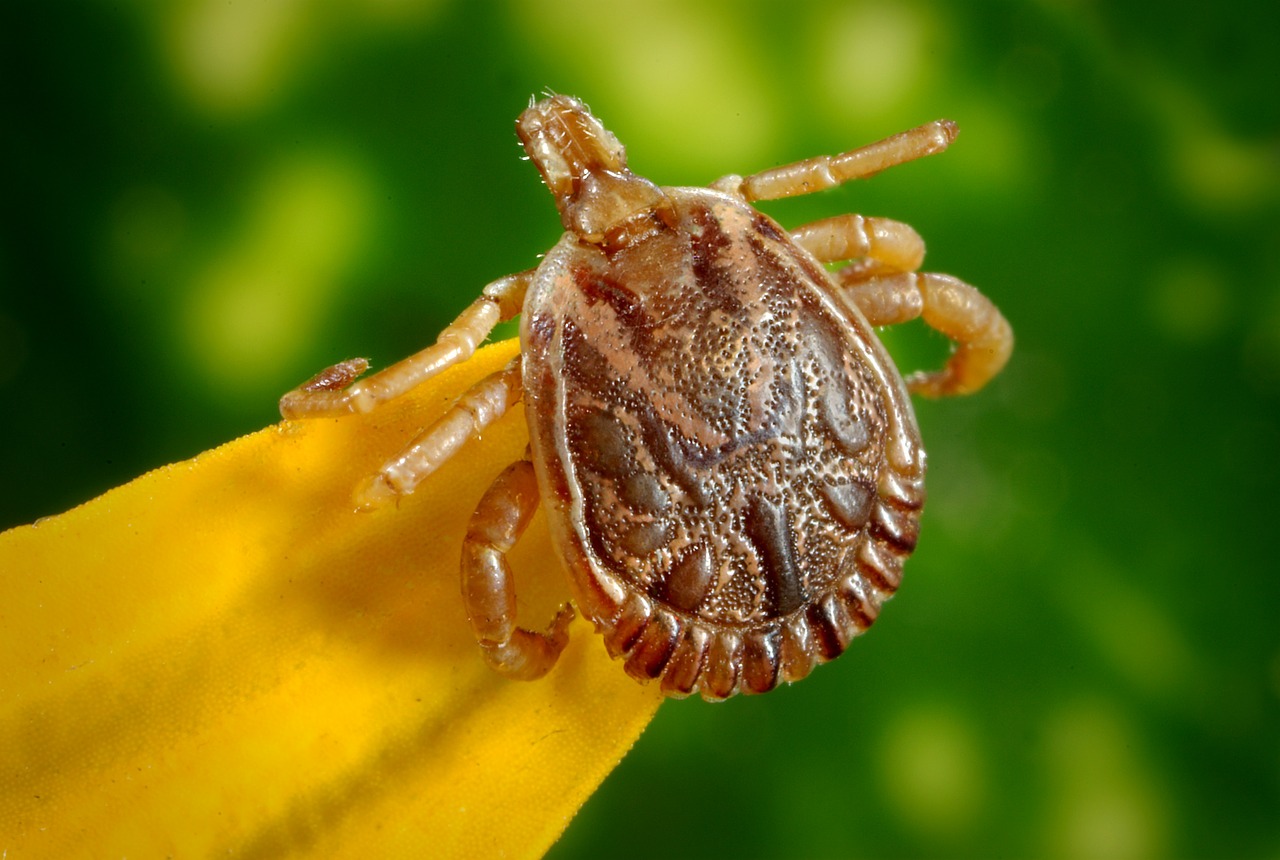Brown Dog Ticks are reddish-brown and lack any easily noticeable markings that are found on many other tick species. Adults that have not taken a blood meal are about 1/8-inch long. Blood-fed females are about a ½-inch long and have a blue-gray coloration. Males are smaller than females but are colored very similarly.
The preferred host of the brown dog ticks are canines, this species seldom attacks other hosts. However, they may sometimes consume a blood meal from people. Their typical habitat is warm, protected indoor locations where dogs are found, and can become established in inside homes. Another place that these ticks can thrive is within animal kennels, so they can also be known as kennels ticks.
Infested pets usually introduce the pests into the home. This is because they are found deep within the hair of animals and homeowners may not immediately see them. At times an infestation may not be recognized until the population grows large and ticks are seen crawling across floors or on walls. Adult ticks usually imbed themselves to a dog’s ears between its toes while larvae and nymphs typically attach to the dog’s back. After the tick is done feeding they drop off their host but they do not travel very far.
The adult female tick lays a mass of 1,000-3,000 eggs after taking a blood meal, and eggs are often laid around baseboards, windows, and door casings, curtains, furniture, and rug edges. Females can also be seen climbing up walls searching for a place to lay their eggs. Even if adults don’t consume a blood meal they can still live up to 200 days. Brown dog ticks are three-host ticks. This means they occur on a different host at each of its three active life stages. A brown dog tick can live off of one host for its entire life, if survival requires it. An interesting fact of the brown dog tick is it can compete its entire life cycle indoors, unlike most species of ticks. They can live in grass or bushes, around homes, dog houses, or kennels, and pets can easily attract them and pick them up.
If you are noticing an infestation with brown ticks make sure to call your friends at All Star Pest Control right away. Brown dog ticks may be potential vectors of Rocky Mountain spotted fever. They may also transmit canine ehrlichiosis and babesiosis to dogs. So, give us a call today to protect your family and your furry loved ones as well. Our trained professional will make sure to stop the infestation and prevent future ones from starting.

